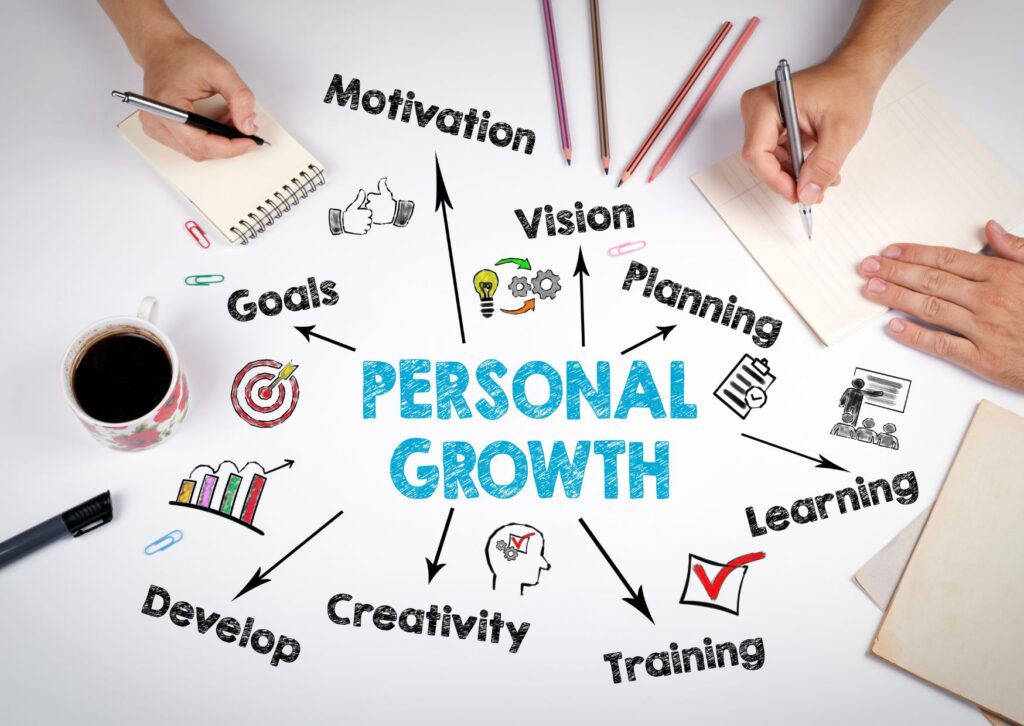10 Good Work Habits to Support Your Wellbeing
Good work habits are an important part of a balanced professional life.
These habits play a pivotal role in enhancing our overall health, wellbeing, and professional careers.
As the boundaries between our work and personal lives become increasingly intertwined, especially with the rise of remote work, establishing and maintaining these positive habits becomes paramount.
This blog will explore the benefits of good habits, their impact on our mental and physical health, and more!
Whether you’re an employer aiming to uplift your team’s wellbeing or an individual striving for a harmonious work-life equilibrium, this guide promises valuable insights.
Contents
The Benefits of Good Work Habits for Overall Wellbeing
10 Good Work Habits to Support Your Wellbeing
The Impact of Good Work Habits on Overall Wellbeing
Challenges Implementing Good Work Habits
How to Implement Good Work Habits
The Benefits of Good Work Habits for Overall Wellbeing
Good work habits are more than just routines, they are beneficial practices that can significantly elevate our overall wellbeing.
Here’s how:
Enhanced Mental Health
Cultivating positive work habits can lead to reduced stress and anxiety levels.
By organising tasks, taking regular breaks, and setting clear boundaries, we can mitigate feelings of overwhelm and burnout.
Improved Physical Health
Regular breaks, proper posture, and ergonomic workspaces can prevent physical ailments like back pain, eye strain, and repetitive stress injuries.
Additionally, habits like taking short walks or stretching can counteract the sedentary nature of many jobs.
At Loving Life, we deliver in person wellbeing workshops and virtual workshops to promote employee physical health.

Boosted Productivity
Good work habits streamline our tasks and improve efficiency.
When we prioritise and manage our time effectively, we can accomplish more in less time, leading to a satisfying sense of achievement.
Better Work-Life Balance
By setting clear boundaries and knowing when to disconnect, we can enjoy quality personal time, leading to a more balanced and fulfilling life.
Increased Job Satisfaction
Employees who cultivate good work habits often feel more in control and less stressed.
This can lead to higher job satisfaction and a more positive outlook toward their roles.
Strengthened Relationships
Effective communication and collaboration are also work habits.
By fostering these, we can build stronger relationships with colleagues, leading to a more harmonious work environment.
Personal Growth and Development
Continuous learning and seeking feedback are also essential work habits.
They pave the way for personal and professional growth, ensuring we remain adaptable and up-to-date in our fields.
In essence, good work habits are the foundation upon which we can build a fulfilling professional life, ensuring that our wellbeing remains at the forefront.

10 Good Work Habits to Support Your Wellbeing
Incorporating positive work habits into our daily routines can have a profound impact on our wellbeing.
These habits not only enhance our professional lives but also ensure that we remain mentally and physically healthy.
Let’s look at some habits to consider:
1. Scheduled Breaks Throughout the Day
One of the most effective habits to support wellbeing is taking regular breaks.
It’s easy to get caught up in the flow of work and forget to pause, but these breaks are essential.
Stepping away from the desk, even for just a few minutes, can refresh the mind, reduce eye strain, and prevent prolonged periods of sitting, which can be detrimental to our health.
Scheduled breaks can also improve concentration and productivity.
By giving ourselves short intervals of rest, we can return to tasks with a renewed focus and energy.
Check out our blog “How Breaks at Work Can Skyrocket Productivity and Reduce Stress“

2. Setting Clear Boundaries
In an age where work-from-home has become commonplace, setting clear boundaries between professional and personal life is crucial.
This means designating specific work hours and sticking to them, avoiding checking work emails or messages outside of these hours, and having a separate workspace at home, if possible.
By establishing these boundaries, we ensure that our personal time is truly our own, reducing the risk of burnout and ensuring we have time to relax and rejuvenate.
This habit is not only beneficial for remote workers but also for those in traditional office settings, as it promotes a healthy balance and prevents work from overshadowing other important aspects of life.

3. Mindful Task Prioritisation
In the hustle and bustle of our workdays, it’s easy to jump from one task to another without a clear plan.
However, mindful task prioritisation can significantly enhance our wellbeing.
By listing tasks in order of importance and tackling them systematically, we reduce feelings of overwhelm and anxiety.
This approach ensures that we give adequate attention to high-priority tasks, leading to a sense of accomplishment at the end of the day.
Additionally, by focusing on one task at a time, we can be more present and reduce errors, leading to higher quality work.
4. Embracing Continuous Learning
The world of work is ever-evolving, and to stay relevant and fulfilled, embracing continuous learning is essential.
This doesn’t necessarily mean formal education or courses, though they can be beneficial.
It can be as simple as dedicating time each week to read industry news, attending webinars, or even discussing new trends and ideas with colleagues.
By fostering a habit of continuous learning, we not only enhance our professional skills but also stimulate our minds, keeping them sharp and engaged.
This proactive approach to knowledge also boosts our confidence, ensuring we feel competent and valued in our roles.

5. Effective Communication
Clear and open communication is a very important in a healthy work environment.
By actively listening, asking questions, and ensuring that we are understood, we can avoid misunderstandings that lead to stress and conflict.
Effective communication also fosters collaboration and strengthens team dynamics.
When we communicate our needs, boundaries, and challenges effectively, we create an environment where support and collaboration thrive, enhancing not only our individual wellbeing but also the collective morale of the team.

6. Routine and Consistency
Establishing a consistent routine can be a game-changer for our wellbeing.
Starting the day at the same time, setting specific intervals for breaks, and having a defined end to the workday can create a sense of stability and predictability.
This routine can act as an anchor, especially in turbulent times or during high-stress periods.
A consistent routine also aids in better sleep patterns, ensuring we are well-rested and ready to tackle challenges with a clear mind.

7. Embracing Digital Detox Periods
In our digitally connected world, it’s easy to become overwhelmed with constant notifications, emails, and messages.
Setting aside specific times during the day or week for a digital detox can be immensely beneficial for our mental wellbeing.
This means turning off non-essential notifications, avoiding screens, and giving ourselves a break from the constant influx of information.
These detox periods allow our minds to reset, reduce digital eye strain, and offer an opportunity to engage in other fulfilling activities.
Whether we pick up a physical book, spend time in nature, or practice mindfulness exercises, a digital detox can support our wellbeing.

8. Cultivating a Growth Mindset
Adopting a growth mindset, a concept popularised by psychologist Carol Dweck, involves viewing challenges as opportunities for growth rather than obstacles.
By believing that our abilities and intelligence can be developed through dedication and hard work, we become more resilient to setbacks and more open to feedback.
This mindset promotes continuous self-improvement and reduces the fear of failure.
When we view mistakes as learning opportunities, we experience less stress and anxiety, leading to a more positive and proactive approach to our work and personal growth.

9. Setting Time for Reflection
Taking time to reflect on our work, achievements, and areas of improvement is a powerful habit for personal and professional growth.
This can be done daily, weekly, or even monthly.
By setting aside specific moments to evaluate our progress, we gain insights into what’s working and what needs adjustment.
Reflection allows us to celebrate small victories, learn from mistakes, and set clear intentions for the future.
It’s a proactive approach to self-awareness and continuous improvement, ensuring that we remain aligned with our goals and values.

10. Organising and Decluttering the Workspace
Our physical environment plays a significant role in our mental wellbeing.
A cluttered workspace can lead to feelings of overwhelm and reduce our efficiency.
By regularly organising our workspace, decluttering, and ensuring everything has its place, we create a conducive environment for focus and productivity.
An organised space reduces distractions, helps us find resources quickly, and even boosts our mood.
It’s not just about physical tidiness; digital decluttering, like organising files and clearing our email inbox, can also have a profound impact on our sense of control and efficiency.

Adopting these habits might require some initial effort and adjustment, but the long-term benefits for our wellbeing are undeniable.
As we integrate these practices into our daily routines, they become second nature, laying the foundation for a healthier, more balanced work life.
The Impact of Good Work Habits on Overall Wellbeing
Good work habits can impact our wellbeing positively in lots of ways.
Let’s look out some of the positive impacts:
Mental Clarity and Reduced Stress
By organising tasks, setting priorities, and managing time effectively, we reduce the cognitive load on our minds.
This organisation leads to clearer thinking, better decision-making, and significantly reduced stress levels.
When our minds aren’t cluttered with lots of tasks and deadlines, we can focus on the present moment, leading to enhanced mindfulness and concentration.
Boosted Self-esteem and Confidence
Achieving small milestones through good work habits boosts our sense of accomplishment.
Over time, this consistent achievement builds our confidence and self-esteem.
We begin to trust our abilities more, take on bigger challenges, and feel a heightened sense of purpose in our roles.

Physical Health Benefits
Regular breaks, ergonomic workspaces, and digital detox periods can prevent common work-related ailments like back pain, carpal tunnel syndrome, and digital eye strain.
Moreover, habits like standing up regularly, stretching, or even short walks can counteract the negative effects of prolonged sitting, promoting better circulation and overall physical health.
Enhanced Work-Life Balance
Good work habits ensure that we allocate time effectively, leading to a clearer distinction between professional and personal time.
This distinction allows us to fully engage in personal activities, hobbies, and spend quality time with loved ones, leading to a richer, more balanced life.
Positive Social and Interpersonal Relationships
Effective communication and collaboration habits foster better relationships at work.
When we communicate clearly, listen actively, and collaborate effectively, we build trust and mutual respect with colleagues, leading to a harmonious and supportive work environment.
Continuous Growth and Adaptability
Habits centred around continuous learning and feedback make us more adaptable to changes in the work environment.
In an ever-evolving professional landscape, this adaptability ensures that we remain relevant, up-to-date, and ready to tackle new challenges.
Overall, the impact of good work habits transcends professional achievements.
They lay the foundation for a holistic sense of wellbeing, ensuring that we thrive not just in our careers, but in every aspect of our lives.

Challenges Implementing Good Work Habits
While the benefits of good work habits are undeniable, implementing them isn’t always a straightforward journey.
Many individuals face many challenges when trying to instil these habits into their daily routines.
Here are some of the common obstacles:
Resistance to Change
Typically, humans are creatures of habit, and any deviation from established routines can feel uncomfortable.
This natural resistance to change can make it challenging to adopt new work habits, even if they’re beneficial in the long run.
Overwhelming Expectations
Sometimes, in the zeal to improve, individuals might try to adopt too many new habits at once.
This can lead to feeling overwhelmed and, eventually, giving up on most, if not all, of the new routines.
Lack of Consistency
Building a habit requires consistent effort over time.
However, sporadic attempts, often driven by bursts of motivation, can lead to inconsistent practice, making it hard for the habit to truly take root.
External Distractions
In our interconnected world, distractions are everywhere — from smartphone notifications to social media and emails.
These constant interruptions can hinder the process of establishing focused work habits.
Lack of Clear Goals
Without a clear understanding of why a particular habit is beneficial and what one hopes to achieve with it, the motivation to continue can decrease over time.

Peer Pressure and Work Culture
In some work environments, certain beneficial habits (like taking regular breaks or not working overtime) might be viewed negatively.
Peer pressure and a company culture that doesn’t prioritise wellbeing can pose significant challenges.
Lack of Resources or Knowledge
Sometimes, individuals might be unaware of the best practices or lack the resources (like ergonomic furniture or productivity apps) to implement good work habits.
Personal Limitations
Health issues, personal responsibilities, or other individual factors can sometimes make it challenging to adopt certain work habits.
Recognising these challenges is the first step towards addressing them.
With awareness, determination, and the right strategies, these obstacles can be overcome, paving the way for a healthier work routine and enhanced wellbeing.
How to Implement Good Work Habits
Implementing good work habits requires a strategic approach, patience, and persistence.
While the journey might seem daunting initially, with the right steps, it becomes manageable and rewarding.
Here’s a guide to help you seamlessly integrate these habits into your daily routine:
Begin Small
Instead of overhauling your entire routine at once, begin with one specific habit.
This approach ensures you don’t feel overwhelmed and can focus on mastering each habit before moving on to the next.
Set Intentions That are Clear
Understand the ‘why’ behind each habit.
When you’re clear about the benefits and the positive impact a habit can have on your wellbeing, you’re more likely to stay committed.
Stay Consistent
Habits are formed through repetition.
Designate specific times in your day for your new habit, and stick to them.
Over time, this consistency will make the habit second nature.

Use Available Tools and Resources
Leverage productivity apps, reminders, or even old-school journals to track your progress and stay on course.
Tools like habit trackers can provide visual reinforcement of your consistency.
Create a Supportive Environment
If you’re trying to reduce distractions, create a dedicated workspace.
If you’re aiming for regular breaks, set up reminders. Tailor your environment to support your new habits.
Seek Accountability
Share your goals with a colleague, friend, or family member.
Having someone to check in with can provide motivation and keep you accountable.

Celebrate Small Wins
Every time you successfully stick to your new habit, acknowledge it.
These small celebrations reinforce positive behaviour and boost motivation.
Keep Learning
Read articles, books, or attend workshops related to the habits you’re trying to adopt.
The more you know, the more committed you’ll be.
Stay Flexible
If a particular habit isn’t working for you, it’s okay to tweak it or replace it with something more suited to your needs.
The goal is to enhance your wellbeing, so it’s essential to find what works best for you.
Review and Reflect
Periodically review your progress.
Reflect on what’s working and what’s not.
This introspection allows you to make necessary adjustments and stay aligned with your goals.
Seek Inspiration
Surround yourself with inspirational quotes, stories, or even people who embody the habits you’re trying to adopt.
Their influence can serve as a reminder of your goals.
Remember, the journey to establishing good work habits is a marathon, not a sprint.
There will be days when you falter, and that’s okay.
One bad day will not define you.
The key is to get back on track, learn from any setbacks, and continue moving forward with renewed determination.

Good work habits are the unsung heroes of our professional lives, playing a pivotal role in shaping our overall wellbeing during a working day.
At Loving Life, we help companies support the health and wellbeing of their employees, as well as deliver webinars and workshops on creating good habits.
Get in touch to see how we can help.
Author
Tyler Lowe – Health & Wellbeing Speaker
BSc Sport & Exercise Rehabilitation


